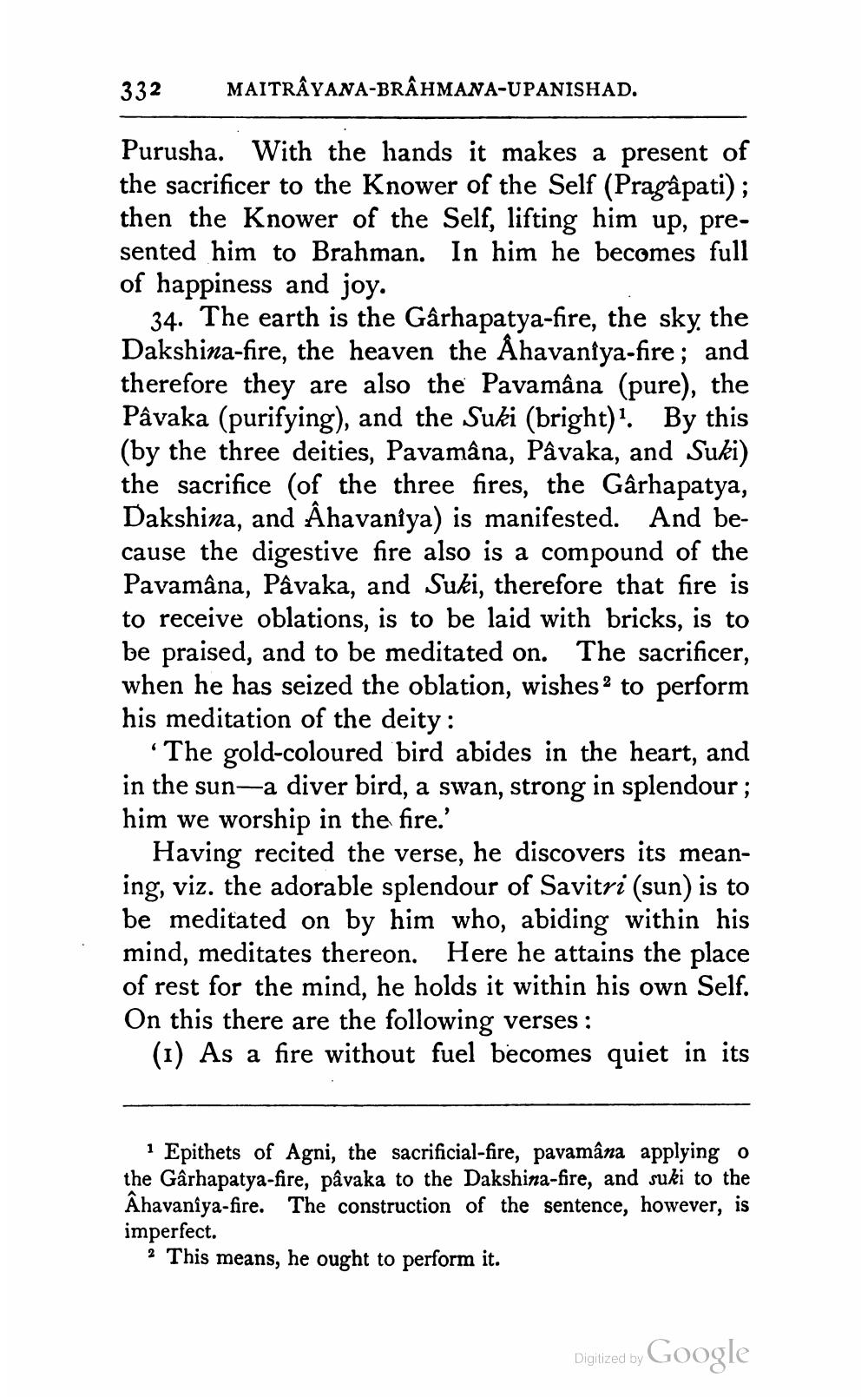________________
332
MAITRÂYANA-BRAHMANA-UPANISHAD.
Purusha. With the hands it makes a present of the sacrificer to the Knower of the Self (Pragâpati); then the Knower of the Self, lifting him up, presented him to Brahman. In him he becomes full of happiness and joy.
34. The earth is the Gârhapatya-fire, the sky, the Dakshina-fire, the heaven the Ahavaniya-fire; and therefore they are also the Pavamâna (pure), the Pâvaka (purifying), and the Suki (bright)? By this (by the three deities, Pavamâna, Pâvaka, and Suki) the sacrifice (of the three fires, the Gârhapatya, Dakshina, and Ahavaniya) is manifested. And because the digestive fire also is a compound of the Pavamâna, Pâvaka, and Suki, therefore that fire is to receive oblations, is to be laid with bricks, is to be praised, and to be meditated on. The sacrificer, when he has seized the oblation, wishes 2 to perform his meditation of the deity:
The gold-coloured bird abides in the heart, and in the sun-a diver bird, a swan, strong in splendour ; him we worship in the fire.'
Having recited the verse, he discovers its meaning, viz. the adorable splendour of Savitri (sun) is to be meditated on by him who, abiding within his mind, meditates thereon. Here he attains the place of rest for the mind, he holds it within his own Self. On this there are the following verses :
(1) As a fire without fuel becomes quiet in its
1 Epithets of Agni, the sacrificial-fire, pavamâna applying o the Gârhapatya-fire, pâvaka to the Dakshina-fire, and suki to the Âhavaniya-fire. The construction of the sentence, however, is imperfect.
? This means, he ought to perform it.
Digitized by Google




